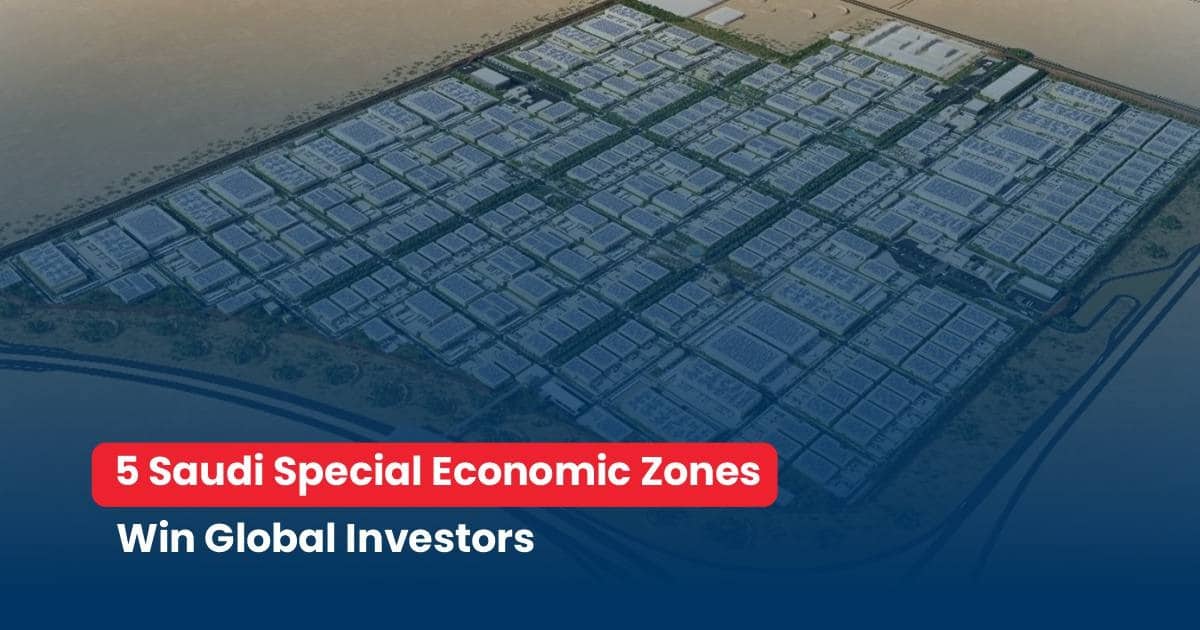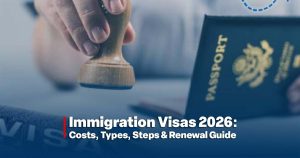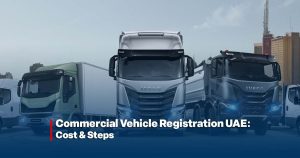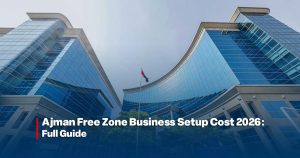Saudi Arabia’s Special Economic Zones (SEZs) are driving a surge in foreign investment, with FDI hitting $25.5 billion in 2023—16% above target. These zones offer major incentives like 5% corporate tax for 20 years, zero VAT on intra-zone trade, and full foreign ownership. But which 5 Saudi Special Economic Zones are winning global investors today? If you want to know where business is booming and why these zones matter more than ever, this guide will show you.
Table of contents
|
What Are Special Economic Zones in Saudi Arabia?
Special Economic Zones for Saudi Arabia are are strategic areas inside a country that follow different business rules than the rest of the nation. designed to boost investment, create jobs, and support Vision 2030 goals.
These zones offer easier business rules, better infrastructure, and tax breaks to attract companies. Moreover, each zone targets key sectors like logistics, cloud computing, and manufacturing. Therefore, businesses find faster services, fewer barriers, and more opportunities. Today, SEZs are key to Saudi Arabia’s plan to diversify its economy and drive growth across new industries.
What Are the Advantages of Establishing a Business in a Special Economic Zone in Saudi Arabia?
Special Economic Zones for Saudi Arabia open new paths for new businesses sectors looking to grow faster, save costs, and reach global markets easily.
- Full Foreign Ownership: Own your business 100% without needing a local partner.
- Tax Savings: Enjoy major tax breaks, with corporate tax as low as 5%, or even 0% in some zones.
- No Customs Duties: Import machinery and raw materials without paying customs fees.
- Zero VAT in Zones: Goods traded inside or between zones are often VAT-free.
- Fast Visa Processing: Quickly get work permits for employees and their families.
- Relaxed Labor Rules: Hire foreign talent easily, often without expat levy fees during early years.
- Simple Business Setup: Benefit from “one-stop-shop” services for faster licensing and registration.
- Top Infrastructure: Access world-class ports, logistics hubs, and utilities designed for business needs.
- Easy Global Access: Reach international markets faster with Saudi Arabia’s strategic location.
- Support for Vision 2030: Join national efforts to diversify the economy beyond oil.
Today, Saudi Arabia’s special economic zones offer more than incentives — they offer real chances to build, grow, and lead. If you plan to expand smartly, now is the time to start.
10 top types of industries benefit from Special Economic Zones in Saudi Arabia
Saudi Arabia’s special economic zones provide significant prospects for expansion in a variety of industries. These zones offer tax breaks, simple rules, and world-class infrastructure, helping industries grow faster, save costs, and reach global markets easily. Here’s a closer look at the industries thriving today:
1. Technology and Cloud Services
SEZs provide top infrastructure, tax incentives, and flexible hiring rules for tech firms and data centers.
2. Advanced Manufacturing
Companies in automotive, electronics, pharmaceuticals, and MedTech enjoy customs exemptions and low taxes.
3. Logistics and Trade
Businesses benefit from fast customs clearance, easy global market access, and strategic locations near ports and airports.
4. Renewable Energy
Solar, wind, and clean energy companies gain fast permits, tax breaks, and export opportunities.
5. Healthcare and Biotechnology
SEZs encourage innovation in pharmaceuticals, medical tools, and healthcare services with supportive regulations.
6. Tourism and Hospitality
Investors in resorts, entertainment parks, and cultural attractions enjoy faster setup and visa support.
7. Aerospace and Maritime Industries
Shipbuilding, offshore platform services, and aerospace firms find dedicated zones with full support.
8. Food Processing and Agritech
Businesses can import duty-free raw materials, produce food locally, and export easily across regions.
9. Financial Services and Fintech
Firms benefit from relaxed regulations, faster licensing, and stronger investor networks.
10. Research and Development (R&D)
R&D companies enjoy relaxed rules, allowing faster testing, innovation, and product development.
Today, Saudi Arabia’s Special Economic Zones are critical for driving economic diversification, creating jobs, and supporting Vision 2030 goals. They offer real tools for businesses to grow smarter, faster, and stronger.
Which 5 Special Economic Zones Are Redefining Saudi Arabia?
Saudi Arabia is betting big on Special Economic Zones (SEZs) to diversify its economy, create jobs, and attract global investors. These zones aren’t just about tax breaks—they’re strategic tools designed to turn the Kingdom into a global business powerhouse. Here’s a plainspoken breakdown of the key SEZs, what they do, and why they matter:
1. King Abdullah Economic City (KAEC) SEZ
Where? Red Sea coast, near Jeddah.
Focus: Manufacturing cars, gadgets, medicines, and moving goods globally.
Perks for Businesses:
- Pay just 5% tax for 20 years.
- Zero fees on importing machinery or sending profits home.
- Fast visas for foreign workers.
Big Win: Lucid Motors uses KAEC’s port to easily export its electric automobiles, which are built here.
2. Ras Al-Khair SEZ
Where? Eastern Province, by the Arabian Gulf.
Focus: Building ships, repairing oil rigs, and maritime tech.
Perks for Businesses:
- Same 5% tax deal as KAEC.
- No customs duties on tools or materials.
- Skilled workers get visas fast.
Big Win: Home to the Middle East’s largest shipyard, aiming to grow Saudi’s $14B maritime industry.
3. Jazan SEZ
Where? Saudi Arabia’s southwest, near to the Red Sea and Yemen.
Focus: Turning raw metals into products, processing food, and trade with Africa.
Perks for Businesses:
- 5% tax, zero fees on imports/exports.
- Cheap land near mines and a busy port.
Big Win: Companies here make everything from canned goods to steel, shipping globally via Jazan Port.
4. Cloud Computing SEZ
Where? HQ is in Riyadh, although data centers can be located anywhere in Saudi Arabia.
Focus: Data storage, AI, and tech innovation.
Perks for Businesses:
- Tax deals matching global standards.
- Cheap electricity (5 cents per kWh).
- No “Saudi partner” required.
Big Win: Part of Saudi’s plan to become a Middle East tech leader, with $20B in tech investment by 2030.
5. Riyadh Integrated Logistics Zone (SILZ)
Where? Next to Riyadh’s airport.
Focus: Moving high-value goods like medicines, electronics, and luxury items.
Perks for Businesses:
- Zero tax for 50 years.
- No customs delays—goods fly in/out fast.
Big Win: Apple uses SILZ to distribute products across the region swiftly.
Why These Zones Work?
- No Red Tape: Permits and visas are approved faster.
- Cheap to Operate: Low taxes, duty-free imports, and subsidized utilities.
- Smart Locations: Mines, ports, and airports are all nearby.
- Vision 2030 Muscle: Each zone tackles a piece of Saudi’s plan to quit relying on oil.
Saudi Arabia isn’t just throwing money at factories and ports—it’s building tailored ecosystems where businesses can thrive. Whether you’re assembling EVs in KAEC, storing data in Riyadh, or repairing ships in Ras Al-Khair, these zones cut costs, boost speed, and connect you to the world.
For investors, the message is clear: Saudi’s SEZs are open for business, and the rules are written to help you win.
Overview of Saudi Arabia’s Special Economic Zones
| Zone Name | Location (Province) | Area | Key Focus Industries | Key Incentives Summary |
| King Abdullah Economic City (KAEC) SEZ | Makkah | 60 km² | ICT (light electronics), consumer goods, pharmaceuticals, medical technology, logistics, and automotive supply chain/assembly | 5% CIT (20 yrs), 0% WHT repatriation, 0% Customs (inputs/capital), Flexible talent rules (5 yrs), 0% VAT (intra-SEZ), Expat levy exemption |
| Ras Al-Khair SEZ | Eastern | 20 km² | Maritime value chains, shipbuilding and MRO, and rig platforms and MRO | 5% CIT (20 yrs), 0% WHT repatriation, 0% Customs (inputs/capital), Flexible talent rules (5 yrs), 0% VAT (intra-SEZ), Expat levy exemption |
| Jazan SEZ | Jazan | 24.6 km² | Food processing, Metal conversion, Logistics | 5% CIT (20 yrs), 0% WHT repatriation, 0% Customs (inputs/capital), Flexible talent rules (5 yrs), 0% VAT (intra-SEZ), Expat levy exemption |
| Cloud Computing SEZ | Riyadh (HQ at KACST) | Virtual | Cloud computing services, Data centers, Digital tech | OECD-aligned special tax treatment, exemption from the foreign levy, Reasonably priced power ($0.05/kWh), location flexibility |
| Riyadh Integrated Special Logistics Zone (SILZ) | Riyadh | 3 km² | Logistics for high-value goods (Pharma, Electronics, Aerospace, Luxury), Consumer products, Food/Medical supplies | 0% CIT (50 yrs), 0% WHT (conditional), 0% Repatriation tax (conditional), Customs suspension/exemption, 0% VAT (goods/services), Potential fee exemptions (e.g., money transfer) |
Is NEOM a Special Economic Zone in Saudi Arabia?
NEOM is often compared to a Special Economic Zone (SEZ), but it’s much more than that. While NEOM shares some similarities with SEZs, it is a next-generation megacity designed to reshape the future of Saudi Arabia, focusing on sustainability, innovation, and technology. The following explains NEOM’s distinctiveness and how it fits into Saudi Arabia’s Vision 2030:
What Sets NEOM Apart from Traditional SEZs?
A Visionary Megacity
- NEOM isn’t just a business hub; it’s a futuristic city that integrates advanced technologies, green energy solutions, and innovative living concepts.
- It aims to be a global leader in fields such as AI, biotechnology, and renewable energy.
Strategic Location
- NEOM’s Red Sea location will enable cross-border trade and investment by linking Saudi Arabia, Jordan, and Egypt.
- This prime location positions NEOM as a key gateway for global businesses.
Independent Regulations
- Unlike traditional SEZs, NEOM will operate under its own set of regulations, including a distinct tax system and business incentives.
- It’s designed to attract both local and international companies, offering full foreign ownership and ease of operation.
Key Features of NEOM:
Investment-Ready Infrastructure
- NEOM will have state-of-the-art infrastructure, including smart cities, autonomous transportation, and renewable energy systems
- It will also offer tax breaks, customs exemptions, and simplified business registration processes—similar to traditional SEZs but on a much larger scale.
Focus on Sustainability and Innovation
- With a focus on green technologies and sustainable living, NEOM is set to be a global hub for renewable energy and smart infrastructure, making it an attractive destination for forward-thinking investors.
Wide-Ranging Investment Opportunities:
- NEOM will offer diverse opportunities across sectors such as tech, biotechnology, advanced manufacturing, and tourism.
- Its innovation-driven environment will create a fertile ground for businesses to grow and thrive.
How NEOM Supports Saudi Arabia’s Vision 2030?
Economic Diversification
- NEOM plays a pivotal role in Saudi Arabia’s efforts to reduce its dependency on oil.
- By fostering innovation and attracting global investors, NEOM will help diversify the economy and contribute to sustainable long-term growth.
Job Creation and Global Trade
- With its focus on attracting foreign investment, NEOM will create thousands of jobs, not only for Saudis but also for a global workforce.
- Its strategic location and innovative infrastructure will make it an essential part of the Kingdom’s trade and business ecosystem.
Pioneering Global Innovation
- NEOM aims to set new global standards for sustainable living and cutting-edge technology, acting as a model for future cities worldwide.
- Its unique approach to business and governance will foster a thriving, tech-forward community.
While NEOM shares certain traits with Special Economic Zones, it’s far more than that. NEOM is a groundbreaking megacity that combines advanced infrastructure, sustainability, and innovation to create an environment where businesses can flourish. NEOM isn’t just about offering incentives for investment; it’s about transforming Saudi Arabia into a global leader in technology, sustainability, and economic diversification under the Vision 2030 plan.
Summary
Special Economic Zones in Saudi Arabia are opening real chances for global investors today. If you are ready to grow your business, now is the time to act. Start exploring which zone fits your goals best. For expert help, Business Link can guide you through every step. Take the first move today and see how Saudi Arabia’s future is being built. These zones are waiting for businesses like yours.
FAQ’s
What Makes Saudi Arabia’s Special Economic Zones Important?
Special Economic Zones for Saudi Arabia drive real change by attracting investors through tax exemptions, visa support, and flexible rules. They help create jobs, boost non-oil industries, and support Vision 2030 goals. Moreover, they offer faster services, full foreign ownership, and easy global access. By focusing on sectors like logistics, technology, and manufacturing, SEZs make Saudi Arabia more competitive, build a stronger economy, and open new opportunities for sustainable growth.
How do Saudi Arabia’s Special Economic Zones operate?
SEZs work by offering a range of incentives such as tax exemptions, reduced import/export duties, and simplified business registration processes. Businesses within these zones can also access world-class infrastructure, including ports, airports, and transportation networks. These incentives make it easier for companies to operate efficiently and grow quickly.
What is the role of government in Saudi Arabia’s Special Economic Zones?
The Saudi government plays a central role in establishing and maintaining SEZs by providing regulatory support, legal frameworks, and financial incentives. Government entities also manage the development of infrastructure, create policies that attract foreign investment, and ensure that businesses within the zones benefit from a supportive and stable environment.
How Do Special Economic Zones Affect Foreign Investment in Saudi Arabia?
Special Economic Zones (SEZs) in Saudi Arabia help attract more foreign investors by offering clear advantages. Businesses operating inside these zones enjoy tax reductions, no customs duties, and faster licensing procedures. SEZs also give companies access to modern ports, airports, and transport networks, making trade and logistics simpler. These benefits lower costs and remove many barriers that usually slow down investment. As more companies set up in SEZs, Saudi Arabia moves closer to its goals of building a diverse economy and creating more job opportunities under Vision 2030.




